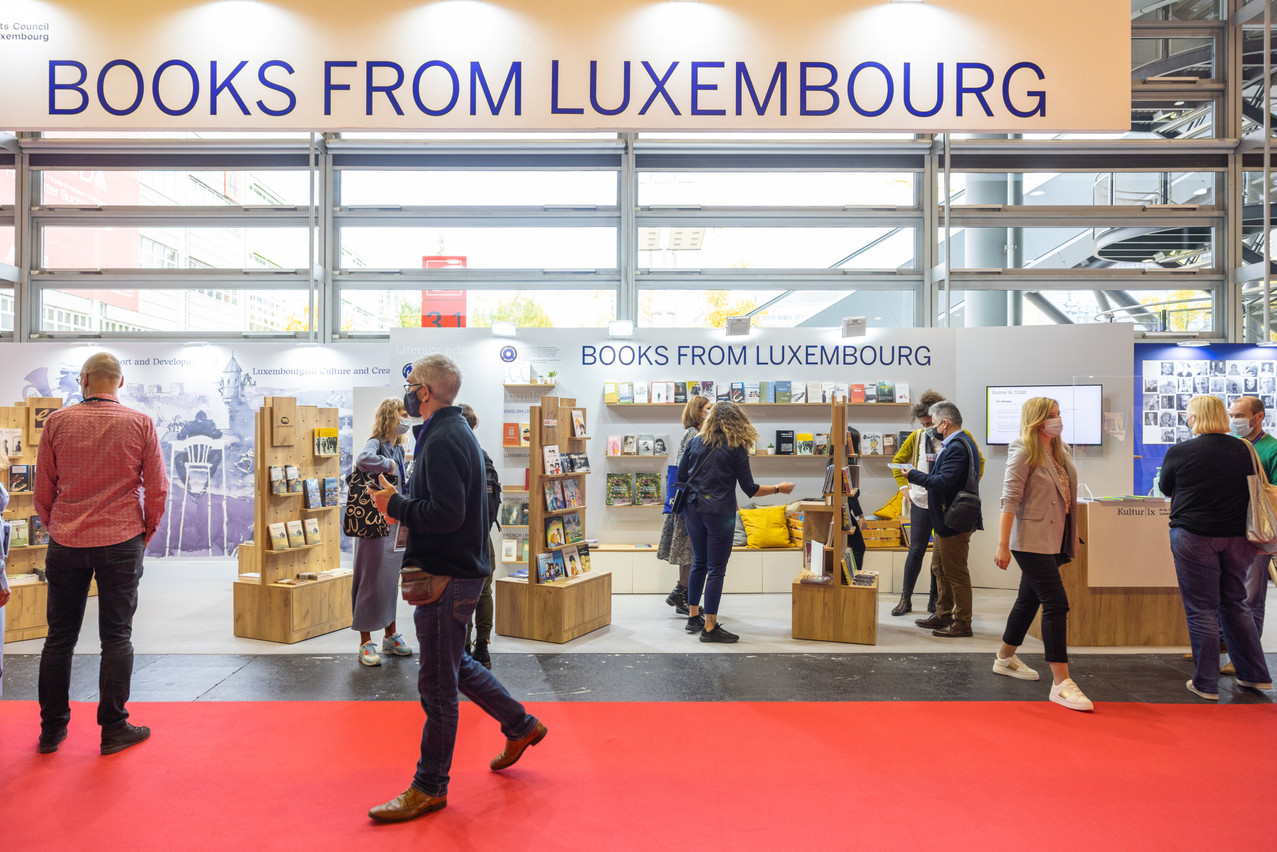One’s ability to speak several languages is “no big deal” in Luxembourg. In fact, most Luxembourgers can code-switch fluently between four languages, making its literary scene also quite peculiar. Luxembourgish, French and German are the most popular languages among authors, although some languages tend to be famous for certain genres--for example, novels in Luxembourgish, poetry published in French and non-fiction books in German, explains Ian De Toffoli from Hydre Éditions.
Come 19 to 23 October, 10 Luxembourg book publishers will be present at the 74th Frankfurt Book Fair, where thousands of exhibitors from over 65 countries are expected. These include Black Fountain Press, capybarabooks, Editions Guy Binsfeld, Editions Schortgen, Ernster Editions, Hydre Éditions, KiWi E.L.G, Kremart Edition, PassaParola Editions, and PersPektiv Editions.
There will be 37 publications by around 18 authors in five original languages--Luxembourgish, German, English, French, Italian--placed on the "Books from Luxembourg" booth (G26) located at Hall 3.1.
Each year, publishers who show interest in participating in the fair are selected following a call. Last year, 10 Luxembourg publishers also represented the grand duchy at the fair, with culture minister (déi Gréng) officially opening the booth.
“Participation always depends on the interest of the publishers …. next year there might even be more publishers who will participate,” explains Kultur|lx project manager in literature and publishing Brian Bailey, whose department is also in charge of organising Luxembourg’s representation at the fair.
It is also an occasion to get in touch with the industry as a whole and to see what is done elsewhere, to get fresh inspiration for our own work.
For De Toffoli, whose publishing house has participated in the fair at least four times, reconnecting with established contacts from previous years makes the experience more worthwhile. Hydre Éditions publications are done in French and German and they intend to take about “four to six books” from recent publications similar to previous years. One of the books from his publishing house will include the new book titled “Bug” by the young Luxembourgish writer Claire Schmartz. It tells the story of a female professor who designs an intelligent robot called BUD and then discovers that is contains a quantity of bugs with a tendency to self-destruct.
“Being present at Frankfurt Book Fair is important for us as a small publishing house, not only to showcase Luxembourgish books abroad but also to cultivate existing contacts with foreign publishing houses and to get to know new publishers and potential business partners for rights trading,” says Inge Orlowski from Editions Guy Binsfeld. They will be showcasing five books by five authors--Tomas Bjørnstad, Germaine Goetzinger, Marc Graas, Guy Rewenig and Nora Wagener.
A dedicated networking event will take place on 20 October. The Luxembourg embassy in Berlin will host a literary evening with authors Elise Schmit and Nora Wagener, and moderated by Jeff Thoss on 13 October.
Translate. Transfer. Transform.
The role of translations will be a major focus of this year’s fair. The theme, “Translate. Transfer. Transform.” will underscore the critical role of translations in literature but also in general communication.
As part of local efforts to give more visibility to Luxembourg authors, several translation subsidies have expanded the reach of local authors beyond borders. Some of the latest subsidies awarded by the Kultur|lx in 2022 enabled the translation of 10 books into languages such as Serbian, Greek, Bulgarian and Macedonian, a majority of which are award-winning publications.
Already, Luxembourg has been invited as guest of honour at the Bridge Festival in Athens, partly thanks to the Greek translation efforts this year, and attesting to new opportunities that translations could unlock.
In January 2022, Kultur|lx became the main contact for allocating translation subsidies, a function formerly held by the culture ministry. The overall budget this year is earmarked at €50,000. Subsidies are granted as full or partial reimbursement to cover translation costs.
Translation support [followed by] publication support by foreign publishers are the most demanded [requests], explains Bailey.
“[It] really gives visibility to Luxembourgish literature, and helps circulate it on a more international level,” says Bailey. On a local level, “for example, in the European School, [it] makes it possible to introduce [students] to Luxembourgish literature in a language they can read.”
The arts council also facilitates local contacts. It recently welcomed a delegation of “German journalists, editors and literary agents,” to interact with their counterparts in the grand duchy and to get an overview of the editorial landscape, as well as its cultural institutions.
Other recent efforts at the national level involve frequent exchanges with the editors’ federation and the association of Luxembourg writers to identify the needs and synergise visibility efforts. Three new brochures covering , were recently published by the art council.

